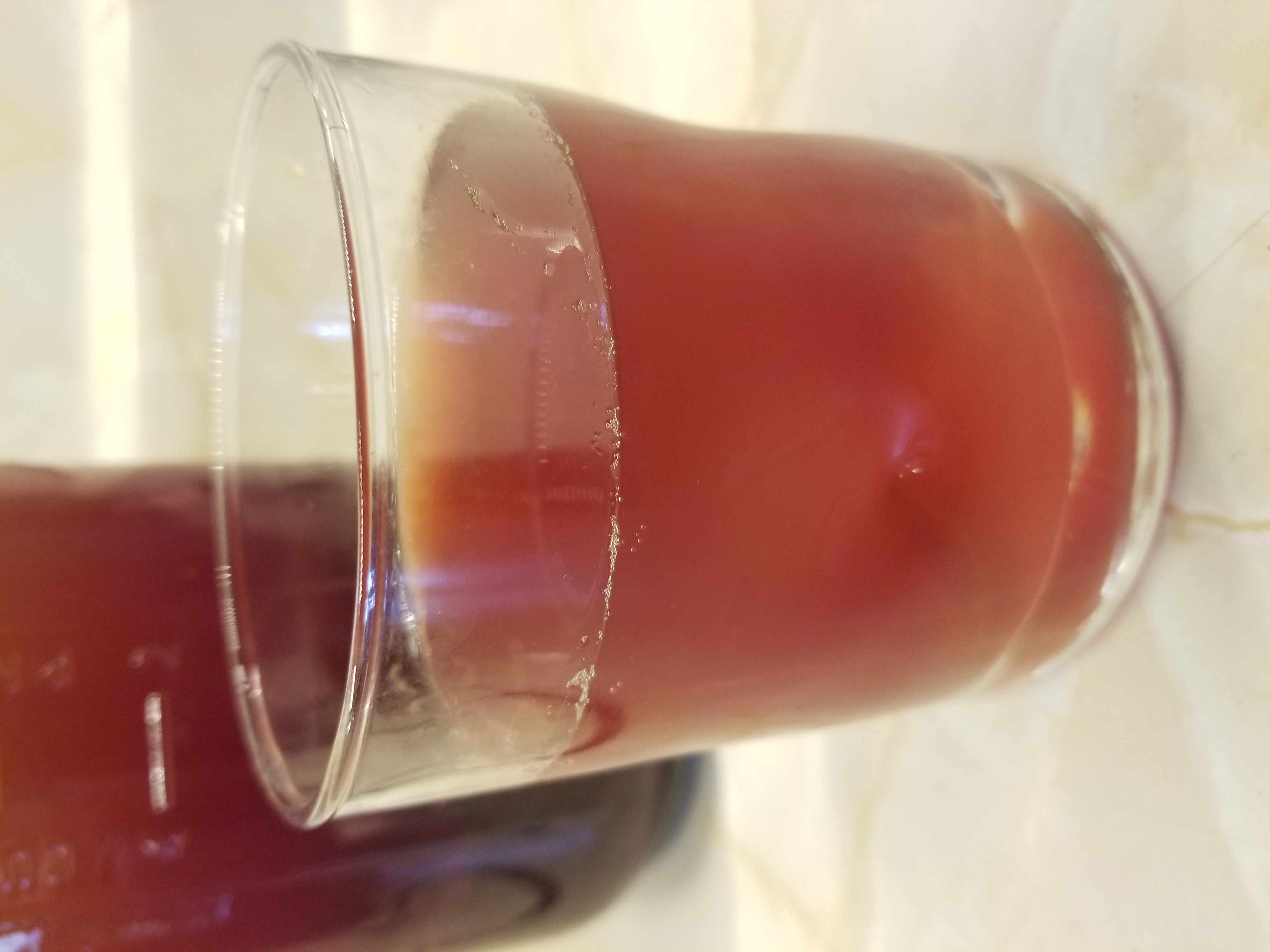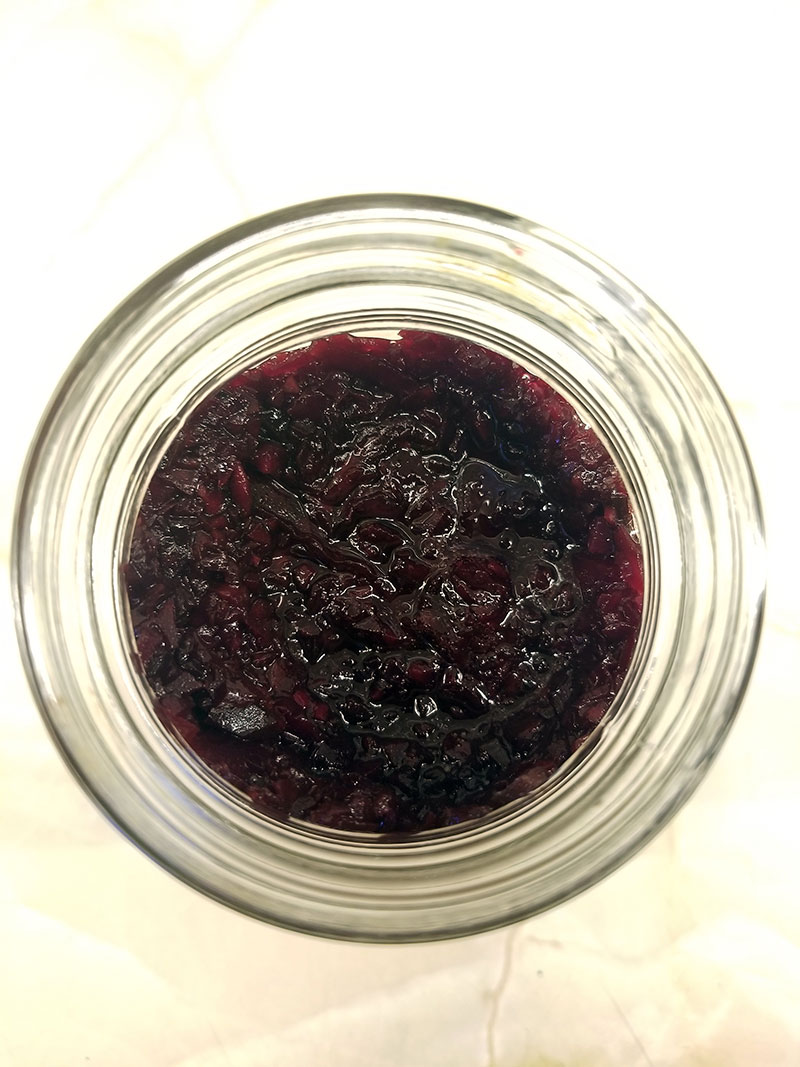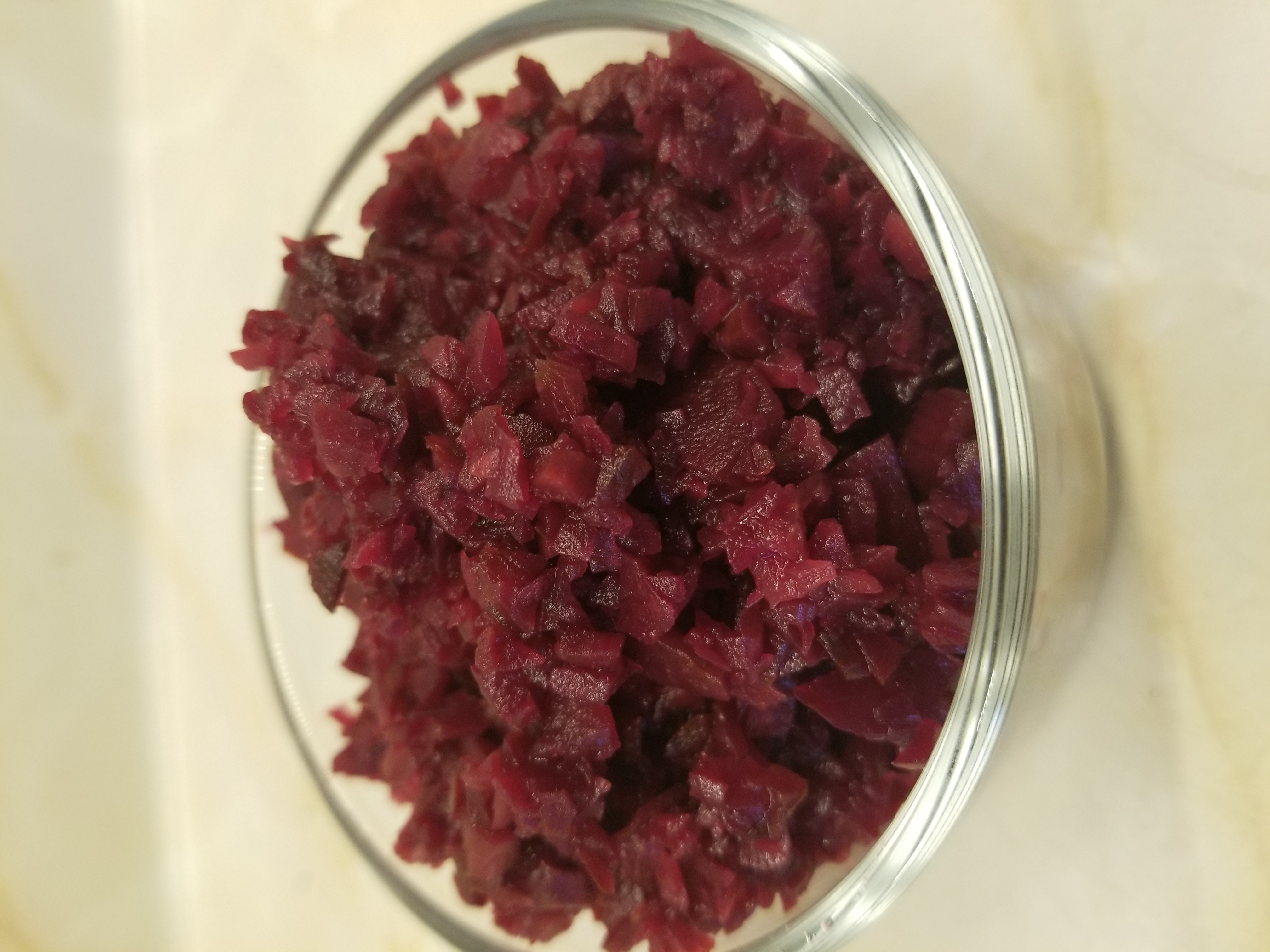Beet Kvass
Timeframe: 5 days
Reduce oxalates in beets for two products: fermented beets and beet kvass, a probiotic beverage.
Ingredients
- 3-5 peeled beetroots, diced or minced
- sea salt
Supplies
- large mixing bowl
- scale (optional)
- mason jars
- strainer
Method
- Tare a large mixing bowl and weigh beetroots.
- Add 2% salt by total weight of the beets and mix thoroughly.
No scale, no problem! Sprinkle 1 tsp salt lightly over beets and mix. Continue adding salt and mixing, 1/4 tsp at a time, till the beets are saturated with their own juices. - Pack mixture into a jar until covered with brine; top with a small amount of water if necessary to keep beets submerged.
- Leave at room temperature for 3 days, checking periodically to confirm beets are submerged.
At this point, the beets are fermented and can be eaten with reduced oxalate levels. Or, follow the next steps to make beet kvass. - Place the fermented beets in a half gallon mason jar, or divide between two quart mason jars. Top with filtered water and stir.
- Taste periodically over 2 days as the beets continue to ferment at room temperature. When beverage has desired levels of sweetness and acidity, refrigerate to slow fermentation.
- Strain the fermented beetroot solids to enjoy as a root vegetable dish, and drink the kvass as a healthful and stamina-promoting beverage!

 keep beets submerged while they ferment at room temperature.
keep beets submerged while they ferment at room temperature.